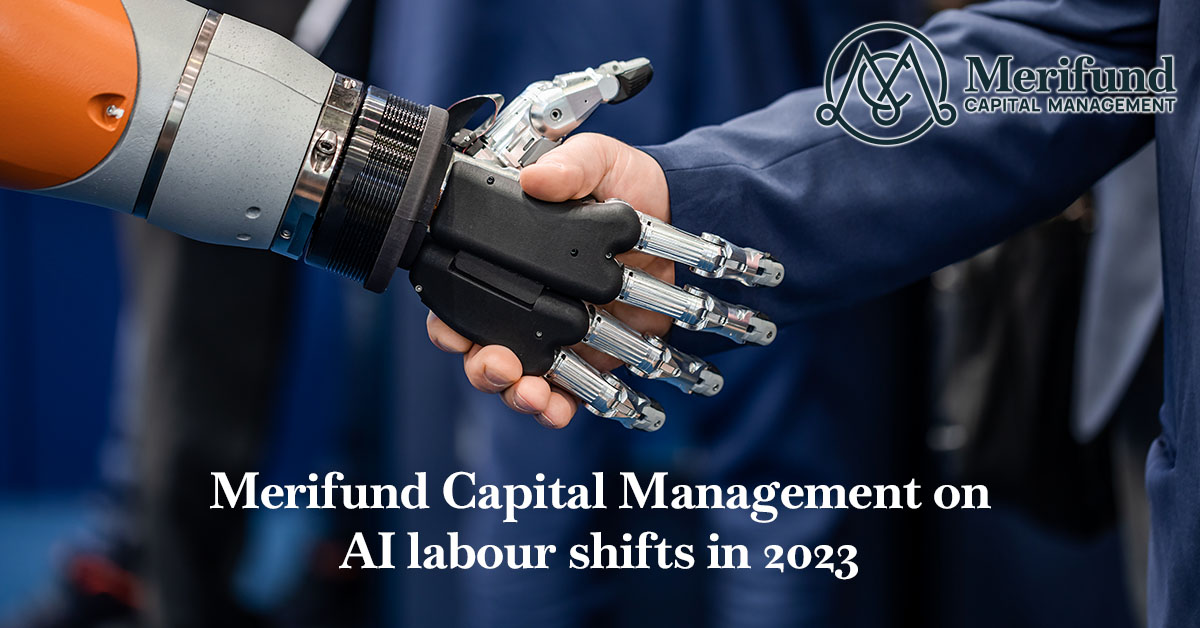European economies in 2023 record shifting employment patterns as artificial intelligence accelerates, with high-exposure sectors adding jobs, younger demographics capturing greater workforce opportunities, and wage premiums signalling persistent skills shortages across industries
19 December 2023 – Merifund Capital Management establishes that artificial intelligence adoption is not eroding European labour markets but is instead restructuring them in ways that challenge conventional forecasts. The firm’s analysis highlights how employment shares are expanding in occupations with higher AI exposure, suggesting complementarity between machine capability and human expertise. This assessment provides institutional investors with actionable insights into the ways technological progress is intersecting with skills, wages and demographic dynamics.
The data underlines a paradoxical development, as sectors most exposed to AI integration report gains rather than losses, with high-skilled roles leveraging automation to boost productivity. Occupations with above-median AI exposure increased their employment share by roughly 1.4 percentage points between 2011 and 2019, confirming that the deep learning expansion created jobs where cognitive intensity was highest. Merifund Capital Management emphasises that automation is operating less as a substitute for labour and more as a catalyst for job transformation.
Analysis of European regional trends reveals that labour markets are adjusting unevenly, with economies that contain high proportions of cognitively demanding roles, particularly in northern Europe, recording greater susceptibility to structural disruption. Conversely, southern regions retain larger portions of employment in areas less directly linked to AI exposure, mitigating immediate disruption but raising long-term competitiveness questions. The divergence in adoption pace has implications for productivity convergence within the eurozone.
Variation across skill categories remains central to understanding labour-market shifts. High-skilled occupations, including those requiring scientific, professional and technical expertise, register substantial employment growth. A 25-centile increase in AI exposure corresponds to a 3.1% rise in sector-occupation employment share using Webb’s indicator, while Felten’s measure points to a 6.7% increase. Low-skilled and medium-skilled categories, in contrast, demonstrate more modest or variable responses, with some regions recording declines in lower-skilled roles as automation absorbs routine tasks.
Wage effects provide another critical marker of transformation, with AI-related skills commanding pronounced premiums. Average wage differentials reached 56% compared to non-AI roles, up from 25% one year earlier. Vacancy analysis shows that AI-focused job postings remain less than 1% of all listings across OECD economies, signalling substantial room for expansion alongside evident skills bottlenecks. Merifund Capital Management stresses that these dynamics create both opportunities for targeted workforce development and investment strategies linked to sectors demonstrating measurable productivity uplift.
When considering demographic change, the evidence demonstrates that younger workers capture outsized benefits, with 73% of AI users under the age of 50 and millennials between 35 and 44 showing expertise levels that far surpass older cohorts. By contrast, workers over 65 report far lower engagement with AI technologies, with structural barriers limiting their adaptation. This generational disparity reinforces the importance of training frameworks that align with extended working life policies.
At a macroeconomic level, European economies demonstrate wage inequality patterns that diverge from previous technology waves, with evidence from 2014 to 2018 indicating that occupations most exposed to AI recorded narrowing income gaps between high and low earners, particularly in professional services and science-related fields. Merifund Capital Management interprets these findings as evidence that AI integration, at least in its current phase, may support wage convergence rather than widening disparity.
Although these effects appear broadly supportive, the firm notes that adoption remains highly concentrated within large technology companies, limiting broad diffusion of productivity benefits. Advanced inputs continue to be deployed unevenly across industries, with smaller firms facing barriers to implementation. The extent to which AI augments or substitutes labour will therefore remain a live question, particularly as generative applications develop further. For this year, however, the data points clearly to augmentation of complex tasks rather than wholesale job displacement.
Merifund Capital Management’s structured analysis underscores the complexity of AI’s effects. High-skilled roles expand, younger workers secure clear advantages, and wage structures increasingly reward technological proficiency. At the same time, regional disparities and limited diffusion highlight risks that investors must weigh carefully. The firm positions its clients to anticipate structural shifts by interpreting AI adoption not as a distant projection but as a current driver of workforce and capital allocation outcomes.
About Merifund Capital Management
Established in 2010, Merifund Capital Management Pte. Ltd. (UEN: 201024554E) is a Singapore-based investment management firm with a primary focus on long-only equity and multi-asset strategies. From its inception, the firm has emphasised disciplined risk management, capital preservation, and liquidity while applying both fundamental and quantitative techniques. The firm remains dedicated to disciplined risk management, capital preservation and maintaining liquidity, while using derivatives selectively to capture investment opportunities. Its client base consists primarily of accredited investors, family offices, foundations and endowments. For further information, please visit https://merifund.com or contact the investor relations team at media@merifund.com.





























